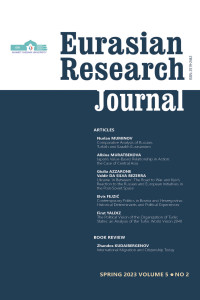Abstract
The original foundations of democratic politics in Bosnia and Herzegovina were developed during the period of Austro-Hungarian occupation, and political pluralism was institutionalized in an incomplete form in 1910. The monarchical regime in the first Yugoslav state did not stimulate political development in Bosnia and Herzegovina, because fictitious political pluralism was introduced in political practice. It was not possible to achieve enviable political development not even in a second Yugoslav state, because it was built on the principles of socialist monism. The independent and sovereign existence of the state of
Bosnia and Herzegovina is limited by ethnocracy and imposed stabilocracy. First, this article will investigate to what extent the post-socialist development of Bosnia and Herzegovina, which takes place in the stages after the multi-party elections in 1990, is determined by earlier political experiences, and above all by the original concept of incomplete democratic politics founded during the ustro-Hungarian occupation government.
Details
| Primary Language | English |
|---|---|
| Subjects | Political Science |
| Journal Section | Research Articles |
| Authors | |
| Publication Date | May 27, 2023 |
| Published in Issue | Year 2023 Volume: 5 Issue: 2 |

